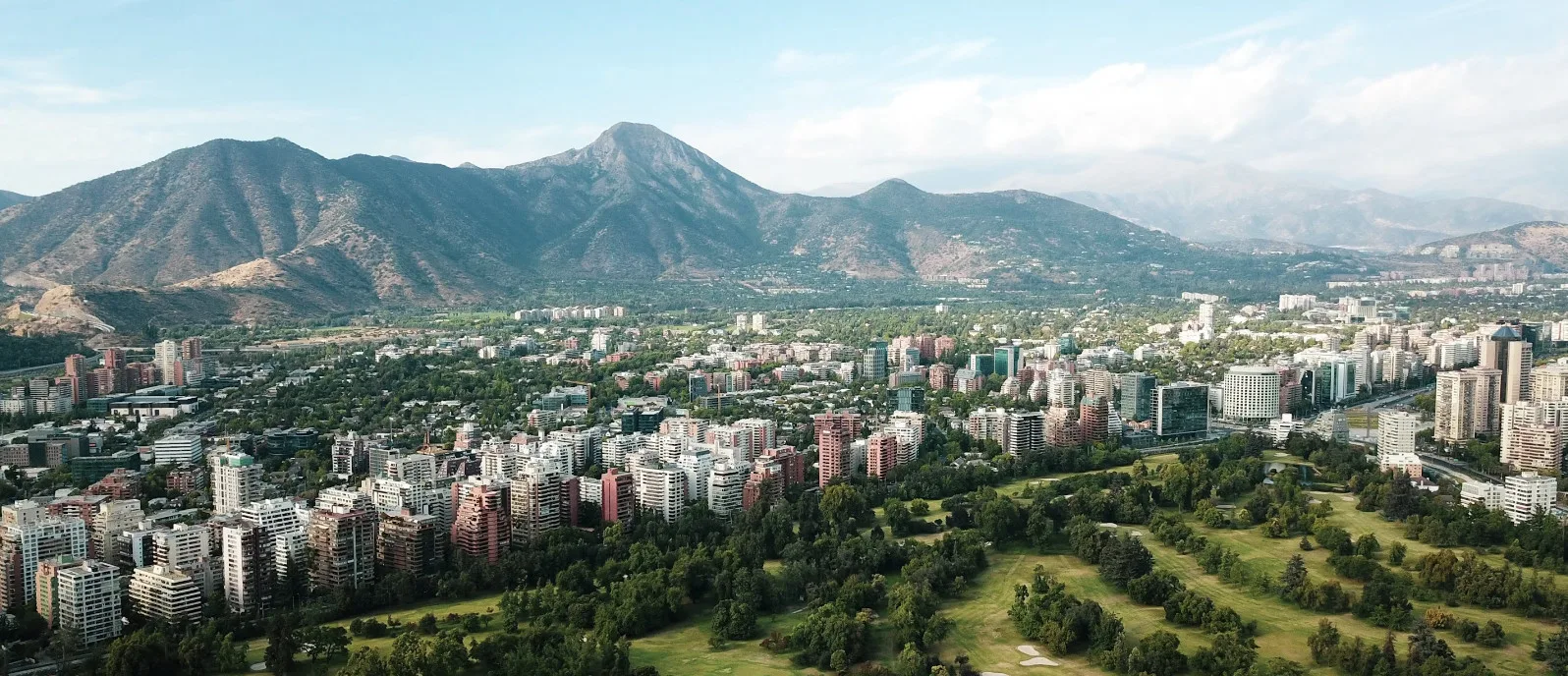The PVT Chile(Working Holiday Permit) is an excellent opportunity for young travelers to discover this fascinating country while working to finance their stay. With breathtaking landscapes ranging from the vast deserts of the north to the glaciers of the south, a rich culture and an affordable cost of living, Chile is attracting more and more globetrotters. This guide will provide you with all the information you need to make a success of your WHP in Chile: from obtaining your visa to finding a job, and including daily life in this South American country.
Chile is renowned for its incredibly diverse landscapes. Over 4,300 km long, Chile stretches across a large part of South America, offering a variety of climates and environments. To the north lies theAtacama, the driest desert in the world, while to the south, the fjords and glaciers of Patagonia captivate nature lovers. Between these extremes, mountains, volcanoes and vineyards shape the landscape.
Chile is therefore an ideal place for adventurers wishing to explore exceptional territories. Whether you're into hiking, surfing, skiing or climbing, you'll find activities to suit all tastes.
Chile is often considered one of the safest and most stable countries in Latin America. This political and economic stability makes it an attractive destination for WHPers, as you'll be able to travel and work in a generally safe environment. What's more, Chileans are renowned for their hospitality and warmth. You'll have the opportunity to immerse yourself in Chilean culture, learn Spanish and make lasting friendships with the locals.
Compared to Europe or North America, Chile offers a relatively affordable cost of living, especially outside the capital Santiago. Rents, food and public transport are affordable, so you can make the most of your stay without breaking the bank. That said, the city of Santiago can be more expensive than other regions, so it's important to plan your spending carefully if you plan to live there.
To obtain a Chilean WHP, you must meet certain eligibility criteria:
- Age: You must be between 18 and 30 at the time of application.
- Nationality: The Chile PVT is reserved for nationals of certain countries that have signed a bilateral agreement with Chile, such as France, Canada, Australia, Germany, Belgium and New Zealand.
- Proof of funds: You must have sufficient funds to support yourself for the duration of your stay. This amount is usually around €2,500 to €3,000.
- Return ticket or additional funds: You must present a return ticket or prove that you have additional funds to purchase your return ticket.
- Health insurance: You must take out health insurance covering your entire stay in Chile.
- Criminal record: In some cases, a clean police record is required.
1. Document preparation: Gather all the necessary documents, such as a valid passport, proof of funds, insurance, passport photos and application form.
2. Making an appointment at the Chilean consulate: The visa application must be submitted to the Chilean embassy or consulate in your country of residence. You'll need to make an appointment online or by phone.
3. Interview at the consulate: Once you have submitted your application, you may be invited to an interview at the consulate, where you will be asked questions about your plans and motivations.
4. Obtaining your visa: If your application is accepted, you will receive your Working Holiday Permit visa, which allows you to stay and work in Chile for one year.
Once you're in Chile, the job opportunities available to people on work experience programs depend on your skill level and the region you're in. Here are a few sectors where you can find work:
- Tourism and hospitality: The tourism sector is one of the most dynamic in Chile, particularly in regions such as Patagonia, San Pedro de Atacama and the Chilean islands. You can easily find jobs in hotels, travel agencies, restaurants or youth hostels.
- Language teaching: If you speak English or French, you can find teaching positions in language schools, institutes or even private tutoring.
- Freelance or online work: With a good Internet connection, you can continue to work for companies remotely or launch your own freelance activity, whether in marketing, content creation or web development.
- Agriculture: Chile is also a wine and fruit-producing country. It's possible to find seasonal jobs in vineyards or on farms, particularly during the harvest period.
The minimum wage in Chile is around 493,900 CLP per month (around €480), but this can vary depending on the sector and the skills required. If you work in sectors such as tourism or catering, your income may also be supplemented by tips.
The labor market in Chile is relatively flexible, but it's a good idea to find out about your rights as an employee, and don't hesitate to sign employment contracts to protect yourself.

The cost of living in Chile varies according to the region you choose to settle in. Santiago, the capital, is one of the most expensive cities in the country, but prices are lower in other regions. Here's a rough estimate of basic costs:
- Accommodation: Shared accommodation in Santiago can cost between €250 and €400 per month. In more remote areas, rent can be much cheaper.
- Food: The cost of food is affordable, especially if you buy your produce at local markets. A meal in an inexpensive restaurant costs around €6 to €10.
- Transport: Santiago's metro is one of the most popular means of transport, costing around €1 per journey.
Chile is a country with a rich and varied cultural heritage. You'll have the opportunity to discover local traditions through festivals such as the Fiesta de la Tirana, or to sample the famous Chilean cuisine, characterized by dishes such as empanadas, curanto or pastel de choclo. The wine culture is also very present, and it's possible to visit some famous vineyards, notably in the Casablanca valley.
For outdoor enthusiasts, Chile's national parks are breathtaking. From hiking in Patagonia's Torres del Paine Park, to stargazing in the Atacama Desert, to the wild beaches of Chiloé Island, the possibilities for outdoor activities are endless.
Chile is one of the safest countries in South America, although vigilance is still recommended in certain urban areas, notably Santiago and Valparaíso. Health infrastructures are also good, with quality public and private hospitals, especially in the major cities. Make sure you have sound health insurance, however, as private care can be expensive.
A WHP in Chile is a unique experience that lets you discover one of Latin America's most fascinating countries, while gaining professional and cultural experience. With careful preparation, a visa in your pocket and a healthy dose of curiosity, you can make the most of this adventure. Whether you're attracted by nature, rich culture or work opportunities, Chile has everything you need to make your Working Holiday Permit experience unforgettable and rewarding.
Share it on social media!







Contact us

Latest news, new programs, travel ideas… one news per month guaranteed without spam!








